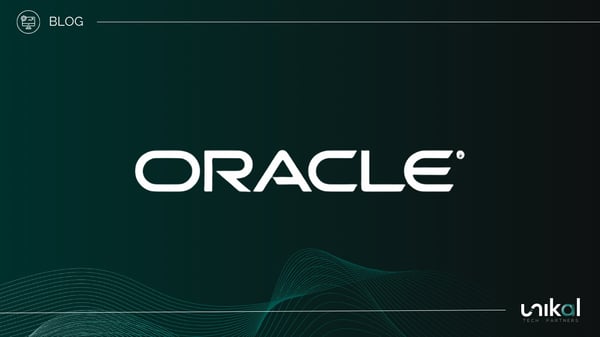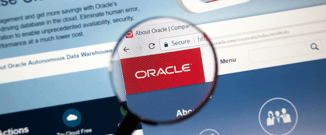
What is Oracle, and why is it important to license it?

Oracle is a leading developer and marketer of relational database management software (RDBMS). Its products are widely used in the business world due to their efficiency, robustness, performance, and reliability.
As with software manufacturers, correct licensing is important because it guarantees the legal and authorized use of the software. Acquiring a license is nothing more than developing the right to use the software under the licensing policies set by the manufacturer.
Normally, since we are talking about environments that support critical business loads and are subject to very tight SLAs, an additional premier support service is contracted with the manufacturer which, in addition to offering support for any problem with the software, allows the software to be updated to new versions after the version existing at the time of purchase, as well as access to patches that appear to improve the software and solve possible failures.
Types of Oracle Licensing

Oracle offers different licensing options to suit customer needs. Broadly speaking, they can be summarized as:
> Core licensing:
In this model, the metric to evaluate when determining the number of Oracle licenses is the number of cores of the hardware infrastructure where the Oracle software runs. Depending on the processor technology, a correction factor will be applied, based on which the total number of Oracle licenses required can be calculated.
>License per user:
In this model, the metric to evaluate when determining the number of Oracle licenses is the number of users interacting with the database, either directly or through any software or aggregator, and always respecting a minimum number of users per core or server, depending on whether we are talking about the Enterprise or Standard version of Oracle Database.
>Socket licensing:
In specific versions of Oracle Database, such as Oracle Database Standard Edition 2, the licensing metric used is the number of sockets on which the Oracle Database software is deployed.
These are just a few examples, and it is important to evaluate the specific needs of each organization to determine the most appropriate type of licensing.
.png?width=150&height=150&name=New%20Iconos%20Blog%20NETERIS%20(7).png) What is the best way to purchase Oracle licensing?
What is the best way to purchase Oracle licensing?
Although it is possible to purchase Oracle licensing directly from the manufacturer, our recommendation is to do it through external technology consultants such as Neteris.
This model is the most advantageous for the end user because we provide added value by optimizing the licensing of Oracle products.
To begin with, we carry out a detailed study of the needs of the company that wants to acquire a solution; in this way, and also thanks to Neteris' own experience, we advise which software is of most interest, taking into account the needs, the sector, and the problem to be solved.
This is the licensing acquisition model with which you will get the most appropriate solution because you are in the hands of experts, and you will also have the service of the consulting firm for everything you need.
In short, acquiring Oracle licensing through Neteris provides the following advantages:
- Personalized advice, guaranteeing that the acquisition is aligned with the business needs.
- Optimization, guaranteeing that the necessary performance will be achieved at a minimum cost.
- We avoid incorrect licensing problems, eliminating the risk of incorrect licensing after an audit performed by Oracle.
-2.png?width=150&height=150&name=New%20Iconos%20Blog%20NETERIS%20(25)-2.png) Important considerations when purchasing an Oracle license
Important considerations when purchasing an Oracle license
When purchasing an Oracle license, it is important to keep in mind some key considerations:
Upgrades and support:
It is critical to ensure that the license includes upgrades and support. This ensures that you can take advantage of the latest security enhancements and fixes.
Compliance with licensing policies:
It is essential to review and comply with Oracle's licensing policies to avoid potential violations and legal penalties.
Future needs assessment:
It is advisable to assess the future needs of the organization when purchasing a license. This ensures that the license is scalable and can adapt to changes in the business environment.
Specialized advice:
- In case of doubts or queries, it is advisable to seek advice from Oracle licensing experts. They can provide personalized guidance and help make informed decisions.
These considerations are key to ensuring a successful license acquisition and avoiding legal or financial problems in the future.
-3.png?width=150&height=150&name=New%20Iconos%20Blog%20NETERIS%20(31)-3.png) Tips for optimizing your Oracle licensing
Tips for optimizing your Oracle licensing
Optimizing your Oracle licensing can help maximize the value of your investment and reduce unnecessary costs. Here are some tips on how to achieve this:
Conduct a license inventory:
It is important to have an up-to-date record of all Oracle licenses used in the organization. This helps to identify potential licensing gaps and optimize the use of existing licenses.
Implement usage policies:
Establishing clear policies on the use of Oracle licenses can help avoid excessive or inappropriate use of the software.
Monitor software usage:
Using monitoring tools can provide valuable information about actual Oracle software usage. This allows you to identify optimization opportunities and take corrective action when necessary.
Evaluate licensing options:
It is advisable to regularly evaluate available licensing options to ensure that the most appropriate model is being used. In some cases, it may be beneficial to switch to a different licensing model.
By following these tips, it is possible to optimize Oracle licensing and get the maximum benefit from the licenses purchased.